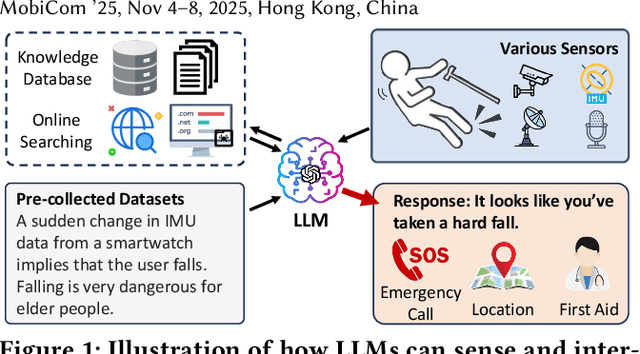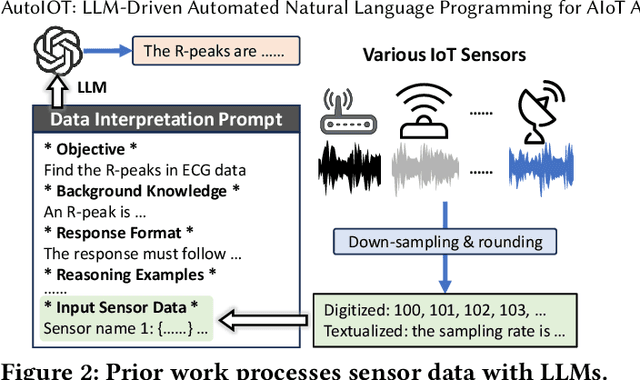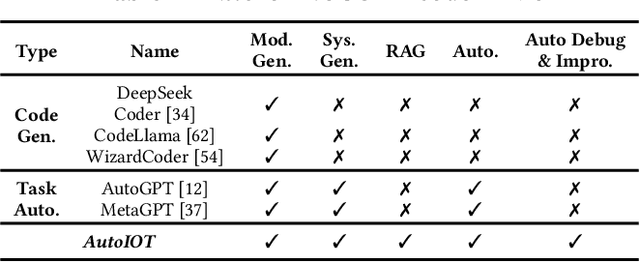AutoIOT: LLM-Driven Automated Natural Language Programming for AIoT Applications
Paper and Code
Mar 07, 2025



The advent of Large Language Models (LLMs) has profoundly transformed our lives, revolutionizing interactions with AI and lowering the barrier to AI usage. While LLMs are primarily designed for natural language interaction, the extensive embedded knowledge empowers them to comprehend digital sensor data. This capability enables LLMs to engage with the physical world through IoT sensors and actuators, performing a myriad of AIoT tasks. Consequently, this evolution triggers a paradigm shift in conventional AIoT application development, democratizing its accessibility to all by facilitating the design and development of AIoT applications via natural language. However, some limitations need to be addressed to unlock the full potential of LLMs in AIoT application development. First, existing solutions often require transferring raw sensor data to LLM servers, which raises privacy concerns, incurs high query fees, and is limited by token size. Moreover, the reasoning processes of LLMs are opaque to users, making it difficult to verify the robustness and correctness of inference results. This paper introduces AutoIOT, an LLM-based automated program generator for AIoT applications. AutoIOT enables users to specify their requirements using natural language (input) and automatically synthesizes interpretable programs with documentation (output). AutoIOT automates the iterative optimization to enhance the quality of generated code with minimum user involvement. AutoIOT not only makes the execution of AIoT tasks more explainable but also mitigates privacy concerns and reduces token costs with local execution of synthesized programs. Extensive experiments and user studies demonstrate AutoIOT's remarkable capability in program synthesis for various AIoT tasks. The synthesized programs can match and even outperform some representative baselines.
 Add to Chrome
Add to Chrome Add to Firefox
Add to Firefox Add to Edge
Add to Edge